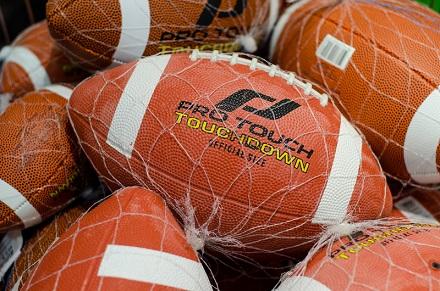

As 7-on-7 touch football gains popularity — thanks to its reputation as a safer alternative to tackle football — it’s worth noting that the Texas State 7on7 Organization now requires all players to wear a soft-shell helmet. It’s reportedly the first statewide group in the country to take such a significant step.
The rule went into effect at this year’s state tournament and, not surprisingly, was met with mixed emotions.
“We’re living in a time where the perception of football is that mamas don’t want their babies to get hurt,” Doug Stephens, executive director of the Texas State 7on7 Organization, told The New York Times. “The other sports, there’s a danger there that no one wants to talk about. People say football, football, football. I get it, because it’s a brutal, violent game.”
“There just comes a point where the sissification of sports in this country is almost at a ridiculous level,” countered Jim Gumm, publisher of the college football newsletter The Blitz, speaking with Houston’s KTRHnews radio station. “It’s a risk that you take when you play sports; you can get a concussion on a basketball court. Kids are just out there having fun and for flag football or touch football to require a helmet is a little over the top, if you ask me.”
The impetus for the rule change was a debilitating injury Texas State 7on7 Organization player Brett Green Jr. suffered last year, when his head collided with a teammate’s shoulder while leaping to intercept a pass. According to The Times, “Green was airlifted to a hospital, where bleeding in his brain was discovered. He spent weeks in the hospital recovering from dizziness, headaches and blurred vision, and had eye surgery and physical therapy. He will never play football again.”
“I don’t want [what happened to me] to happen to anyone else,” Green told the newspaper. “I wish the decision had been made earlier, but I try to look for the good in everything.”
Sports equipment manufacturers report a surge in orders for soft headgear from sports administrators, coaches and parents trying to prevent head injuries, reported The Times, which noted that the quality of products varies greatly.
“People are starting to realize it’s not just football, but other sports,” said Stefan Duma, an engineering professor at Virginia Tech who oversees helmet testing at the university. “When you have kids running really fast, bare head-to-head or head-to-elbow contact is a very high impact event. If people are going to be running around at high speeds, having some padding will make a huge difference.”

